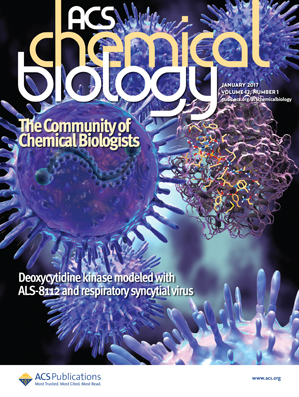A Biomimetic Optical Cardiac Fibrosis-on-a-Chip for High-Throughput Anti-Fibrotic Drug Screening.
IF 3.5
2区 生物学
Q2 BIOCHEMISTRY & MOLECULAR BIOLOGY
引用次数: 0
Abstract
Cardiac fibrosis has emerged as the primary cause of morbidity, disability, and even mortality in numerous nations. In light of the advancements in precision medicine strategies, substantial attention has been directed toward the development of a practical and precise drug screening platform customized for individual patients. In this study, we introduce a biomimetic cardiac fibrosis-on-a-chip incorporating structural color hydrogels (SCHs) to enable optical high-throughput drug screening. By cocultivating a substantial proportion of cardiac fibroblasts (CFBs) with cardiomyocytes on the SCH, this biomimetic fibrotic microtissue successfully replicates the structural components and biomechanical properties associated with cardiac fibrosis. More importantly, the structural color shift observed in the SCH can be indicative of cardiac contraction and relaxation, making it a valuable tool for evaluating fibrosis progression. By incorporating such fibrotic microtissue into a microfluidic gradient chip, we develop a biomimetic optical cardiac fibrosis-on-a-chip platform that accurately and efficiently screens potential anti-fibrotic drugs. These characteristics suggest that this microphysiological platform possesses the capability to establish a preclinical framework for screening cardiac drugs, and may even contribute to the advancement of precision medicine.用于高通量抗纤维化药物筛选的仿生光学心脏纤维化芯片
在许多国家,心脏纤维化已成为发病、残疾甚至死亡的主要原因。随着精准医疗战略的发展,人们开始关注为个体患者量身定制实用、精准的药物筛选平台。在本研究中,我们介绍了一种结合了彩色结构水凝胶(SCHs)的仿生心脏纤维化芯片,以实现光学高通量药物筛选。通过将相当比例的心脏成纤维细胞(CFB)与心肌细胞共培养在 SCH 上,这种生物仿真纤维化微组织成功地复制了与心脏纤维化相关的结构成分和生物力学特性。更重要的是,在 SCH 中观察到的结构颜色变化可以指示心脏的收缩和松弛,使其成为评估纤维化进展的重要工具。通过将这种纤维化微组织纳入微流体梯度芯片,我们开发出了一种生物仿真光学心脏纤维化芯片平台,可以准确高效地筛选潜在的抗纤维化药物。这些特点表明,这种微生理学平台有能力建立一个筛选心脏药物的临床前框架,甚至可能有助于精准医学的发展。
本文章由计算机程序翻译,如有差异,请以英文原文为准。
求助全文
约1分钟内获得全文
求助全文
来源期刊

ACS Chemical Biology
生物-生化与分子生物学
CiteScore
7.50
自引率
5.00%
发文量
353
审稿时长
3.3 months
期刊介绍:
ACS Chemical Biology provides an international forum for the rapid communication of research that broadly embraces the interface between chemistry and biology.
The journal also serves as a forum to facilitate the communication between biologists and chemists that will translate into new research opportunities and discoveries. Results will be published in which molecular reasoning has been used to probe questions through in vitro investigations, cell biological methods, or organismic studies.
We welcome mechanistic studies on proteins, nucleic acids, sugars, lipids, and nonbiological polymers. The journal serves a large scientific community, exploring cellular function from both chemical and biological perspectives. It is understood that submitted work is based upon original results and has not been published previously.
 求助内容:
求助内容: 应助结果提醒方式:
应助结果提醒方式:


